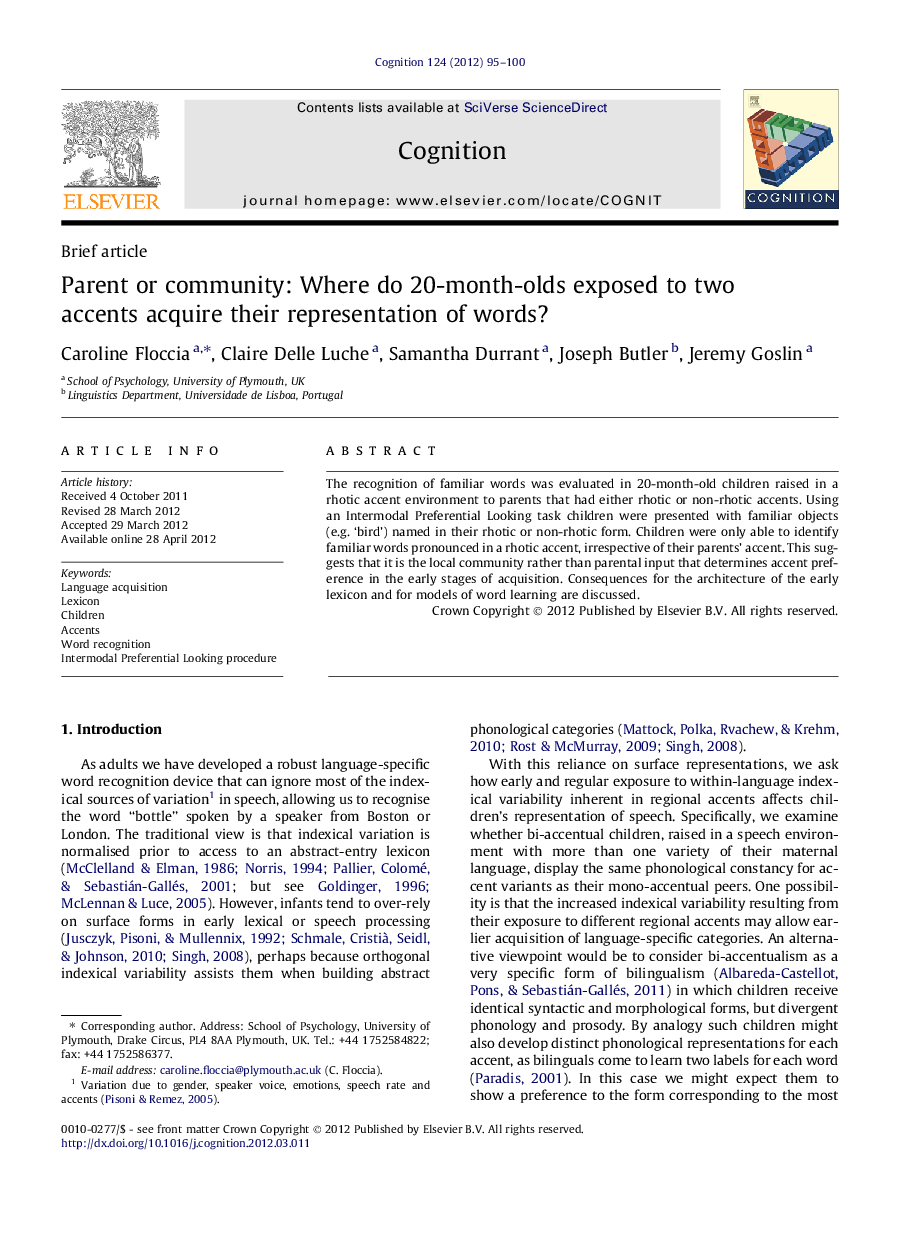| Article ID | Journal | Published Year | Pages | File Type |
|---|---|---|---|---|
| 10457671 | Cognition | 2012 | 6 Pages |
Abstract
The recognition of familiar words was evaluated in 20-month-old children raised in a rhotic accent environment to parents that had either rhotic or non-rhotic accents. Using an Intermodal Preferential Looking task children were presented with familiar objects (e.g. 'bird') named in their rhotic or non-rhotic form. Children were only able to identify familiar words pronounced in a rhotic accent, irrespective of their parents' accent. This suggests that it is the local community rather than parental input that determines accent preference in the early stages of acquisition. Consequences for the architecture of the early lexicon and for models of word learning are discussed.
Related Topics
Life Sciences
Neuroscience
Cognitive Neuroscience
Authors
Caroline Floccia, Claire Delle Luche, Samantha Durrant, Joseph Butler, Jeremy Goslin,
